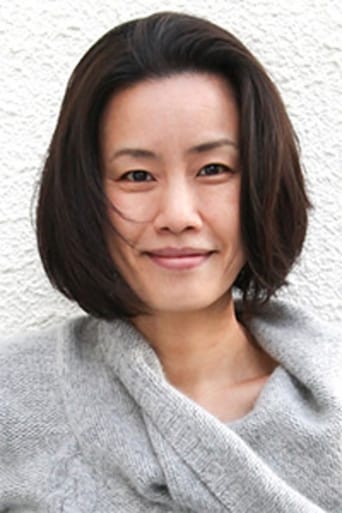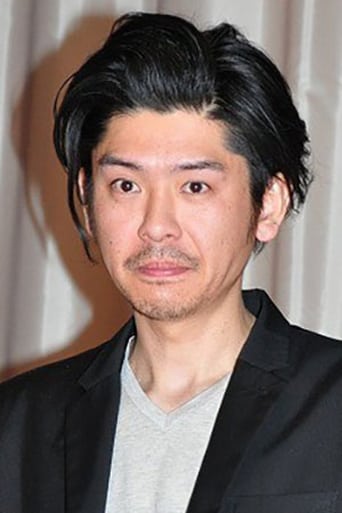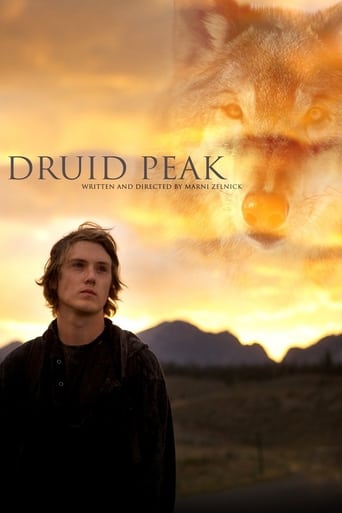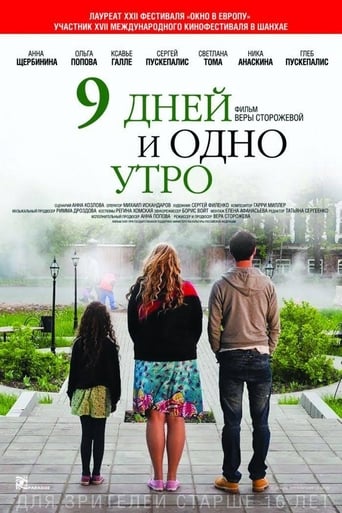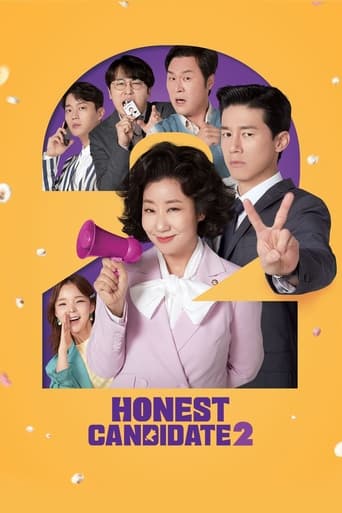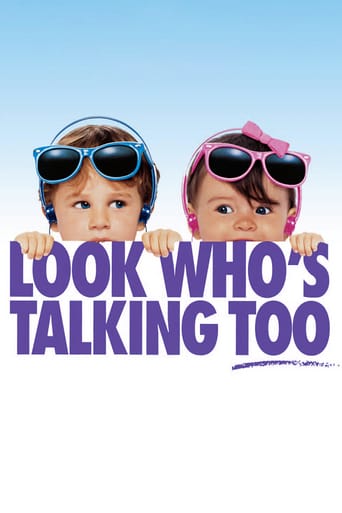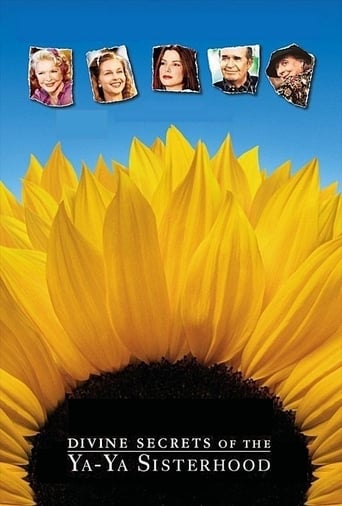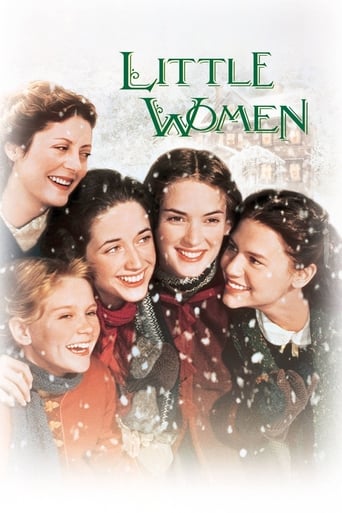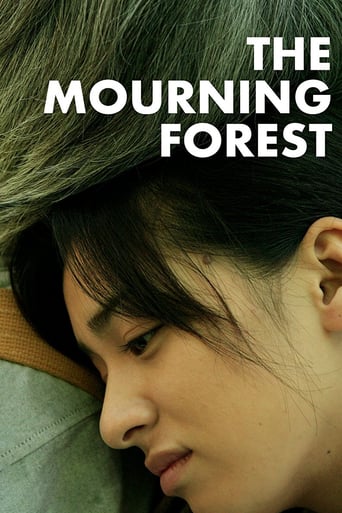
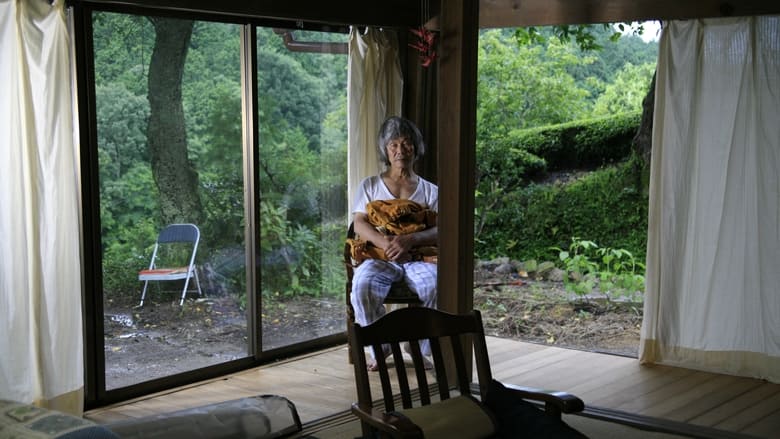
The Mourning Forest (2007)
A young woman working at a retirement home takes an elderly man living there on an excursion into the countryside, but the two wind up stranded in the titular forest.
Watch Trailer
Cast


Similar titles
Reviews
Pretty Good
Just what I expected
Highly Overrated But Still Good
An old-fashioned movie made with new-fashioned finesse.
Machiko is a caregiver at a nursing home, Shigeki is one of the residents. Machiko is grieving the (apparently recent, though it's unclear) death of her young son, while Shigeki still mourns the loss of his wife, 33 years earlier. Their relationship to each other and to their grief during an excursion when they get lost in the woods. Their bond is complicated by Shigeki's dementia, whose often childlike behavior surely resonates with Machiko. It's an interesting, contemplative and spiritual exploration of grief with some lovely moments. Without spoiling anything, a charming early scene of Shigeki at the piano takes on a heartbreaking twist. Later, as Machiko desperately tries to control his reckless quest through the forest, we get hints of how she lost her child and the unresolved feelings she has.Although there are gorgeous scenes (the two playing amidst rows of geometrically carved hedges, for example) the hand-held cinematography isn't doing the film any favors. It may have been more appropriate in the latter half, as their journey takes them deeper into the wild. But the shaky camera-work throughout the entire movie adds nothing. Maybe it just comes naturally to Naomi Kawase, whose work is primarily in documentaries (although she's no stranger to drama).I don't know if this is an accurate representation of a Japanese senior facility, or an idealized one. I know that respect for elders is more ingrained in their culture. The home certainly appears to be a great deal more comfortable, dignified and serene than what we have. Perhaps it's a very expensive one, though we get no hints that Shigeki is particularly wealthy.I thought it could have explored its themes a bit deeper, and there are the aforementioned camera issues, but overall I liked the film a great deal. It ends on a strikingly beautiful note. I'd like to see more by Kawase.
Winning the Grand Prix of the Cannes Film Festival last year, I actually found it a tad difficult to appreciate this piece by Naomi Kawase, as compared to Shara. I am beginning to suspect that I have a profound disengagement with movies that deal with grief and loss, especially when it takes on a very detached approach in some ways with the characters constantly unable to deal with those emotions for the most parts.The movie opened true to Kawase's penchant for capturing moving air. Here, we see lush greenery on tree tops dancing to the motion of wind, and vast open fields where blades of grass sway back and forth when caressed by the breeze. It's like watching a National Geographic episode of forests and greenery before the opening credits kicked in to start the film proper. I even suspected that M Night Shyamalan could have paid homage in his The Happening, which also had plenty of such shots put into it.The story tells of the relationship that formed between Shigeki (Shigeki Uda) and Machiko (Machiko Ono), the former an old man in an elderly home who has been aloof after the lost of his wife some 33 years ago. 33 years is an extremely long time, and to miss someone for that long, well, you know how strong his emotions are to his wife. On the other hand, Machiko is a staff at the same elderly home, but she too is grieving internally for the loss of her son, and her husband squarely puts the responsibility and blame on her petite shoulders.While initially starting off on the wrong foot with fiery misunderstanding, they soon hit it off in a game of tag in the great outdoors, where the camera pulls back to reveal again the large open spaces, and the two protagonists finding and connecting with each other, two tiny creatures in the space that Nature offered, only to act as a precursor of a more adventurous outing that would come soon after, in an excursion that took a turn for the unexpected when their car ran into a ditch.In what seemed to be a wandering around aimlessly on foot deep inside nature herself, both Shigeki and Machiko had to depend on each other to keep to their wildlife tour, with the former having the objective of wanting to look for his late wife's grave, like a pilgrimage in itself. The observations from far earlier gives way to a more intimate look at the two, and Shigeki turned into some kind of enigma, clutching his all important haversack, as they go from set piece to set piece, some quaintly quiet, while others I seem to make no headway from sudden outbursts which persisted as being more whiny than anything else.Might be a masterpiece for some to appreciate, especially with its beautiful cinematography, but everything else was certainly lost on me probably due to my lack of extreme patience, and I grief in not being able to be moved by this movie.
This movie won the Grand Prize in Cannes Film Festival. I didn't get it, as usual."Discovering your true identity through a journey" is in fact my favorite theme for movies, and this film at first seemed very promising with interesting characters and beautiful sceneries of the forest. However, as the movie progressed, I became more and more confused. I'm sure this is one of those movies that's supposed to make you think, but way too little information was given even for audience to use their imagination.I actually went back to read the plot synopsis after I finished watching the film (all confused), and realized for the first time the nurse had previously lost her child. There was a scene where an unknown man saying it's all your fault. Now that I think of it, he is probably her ex-husband blaming her for the dead child. No matter how you think about it, any movie that requires the audience to read plot synopsis to understand the plot is unacceptable as a film. There were many other things in this film that was just outright puzzling, but the movie ended without even attempting to explain any of it. I absolutely did not connect with any of the characters. While this film had an extremely beautiful cinematography, that alone is not enough to make it a great film as a whole. The screen also shook far too much. I understand this director used to be a documentary filmmaker, but that is totally unnecessary for a feature-length film.I actually really liked the female lead actress Ono Machiko, but the male lead had too much age difference that I just couldn't see them as a couple. That "campfire" scene was completely incomprehensible for me.It's very well-known that Japanese films that win prizes in Cannes rarely fit the typical Japanese tastes. I guess movies, especially at film festivals are considered to be art, so perhaps truly amazing works are not meant to be understood by an average viewer like me. Or maybe Western audiences simply see the Japanese as a mysterious group of people, and liked the mysterious couple in this film behaving erratically in the enigmatic forest.This film, like many other Japanese Cannes prize-winners, had disastrous user review ratings in Japanese movie sites. I really need to start heeding their advice and not expect too much from these movies.
Saying honestly, when the movie ended, I felt tricked. As the two people stray off into the woods, I felt anxious on how they are rescued; felt anxious with Machiko, who without thinking follows Shigeki, an old man with dementia; and I thought 'Hey when you get lost in mountains, you should even go up to the summit '. But actually the director is indifferent on such thrills. She expected the audiences to focus on the imagined scenery of the dementia patient and the care giver. That was why I felt tricked. Though not explained clearly, the reason why Machiko came to the care house, which is a renovated old farmer's house in mountainous village, might be a death of her son. Her husband blames her that if she did not loose her clutch of her son the son would have not died. One day when they had calligraphic exercise, Machiko wrote her name. Accidentally this made Shigeki recall his wife's name Mako. Mako died 33 years ago. Since then Shigeki lived in memory of Mako for very long years. Since then, mental connection between Machiko and Shigeki gradually grows.One day, Machiko takes Shigeki to visit Mako's tomb by car, but the car runs off on the way. It is so remote that mobile phone does not work to call for help. But from the place, Shigeki walks into the woods heading 'Mako's tomb', and Machiko has no idea but to follow him. Since then many things happen. At night, Shigeki feels chilly due to fatigue and coldness; Mako warms him naked. The next morning, Shigeki is going across dangerous river; Mako imagines it suddenly floods, and cries and cries until Shigeki comes back. This recalled me 'Sanzu no kawa', an imaginary river that separates the world of quick and the dead. Finally, Shigeki arrives at the destination; he pulls out notebooks he wrote for 33 years, perhaps filled by the memories of Mako; and he digs a hole by hand; then he peacefully sleeps in it. Besides him, Machiko feels healed from all of her past troubles. The motif in the movie is heavy: care-giving, death of child, death of wife, and burial. As my mother is in Alzheimer disease, I had strong empathy on Shigeki. I think many of the audiences have these kinds of experiences. The message from the movie is, as I received, to have real feeling of life and healing, beyond getting old and death. This attempt is, however, not very successful, because, as I wrote in the beginning, the audiences may feel tricked at the end.



